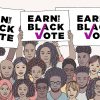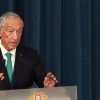Land grabs in Africa by foreign corporations highlighted
by Burney Simpson
Staff Writer, The NorthStar News & Analysis
President Obama said this week that U.S. companies will invest $33 billion in Africa as part of the administration’s move to expand American trade with the continent in response to similar moves by China and Europe. The president’s announcement highlighted his three-day U.S.-Africa Leaders Summit in Washington, D.C., that brought together government and business executives from nearly 50 African countries and 90 American companies.
A few miles from the White House, scholars, activists and leaders from progressive not-for-profits in Africa and the U.S. held a one-day counter summit at Howard University. The Empowered Africa Dialogue on Aug. 4 gave attendees the opportunity to discuss the impact of large investments in Africa by outsiders, and share strategies on growing economic opportunities on the continent without exploiting its citizens or destroying its natural resources.
The Dialogue’s goals were to “critique significant issues related to US-Africa policy, but also discuss alternative strategies and policies from a progressive and proactive perspective,” according to US-Africa Network, one of the organizers.
Seminars on climate change, militarism, trade unions, agribusiness, and illicit financial flows to Africa were held with speakers from AfricaFocus Bulletin, Friends of the Congo, Howard University, Syracuse University, Oxfam International, and others.
At a panel, titled “Agribusiness and Land Grabbing,” Kysseline Cherestal of ActionAid USA reported that external businesses had conducted more than 1,600 large-scale land purchases since 2000 in Africa that, put together, encompassed acreage larger than Germany. These deals are typically conducted between the host country and the business, and facilitated with financial and policy incentives offered by the governments of both the host country and the business.
ActionAid’s “The Great Land Heist” report found that “the current wave of land grabs is … an acceleration of a longer-term process via which corporations, assisted by governments, have been trying to assert control over all stages of the farming and food system, often at the expense of smallholder farmers.”
Jacques Bahati of the Africa Faith and Justice Network compared the massive land purchases to Europe’s armies invading Africa in the 19th Century to take over entire countries.
“This is another wave of colonialism. … Africa is not ready for this kind of business deal,” said Bahati. “Our leaders are mortgaging our continent.”
While there is no simple solution to ending exploitive land purchases, many African communities can learn how to better face up to deep-pocketed international investors, understand the value of their land, and band together to create their own best use of the acreage, the panelists suggested.
The Empowered Africa Dialogue concluded with a networking dinner at an Ethiopian restaurant in nearby Silver Spring, Md.
The Summit at the White House was the latest effort by Obama to build ties with Africa. In June 2013, the president announced Power Africa, a $7 billion, five-year commitment from the U.S. to grow the electric power infrastructure in Sub-Saharan Africa where an estimated two-thirds of the population does not have access to electricity.
This week’s $14 billion pledge from U.S. businesses comes as global investors seek to profit from African labor and resources. Foreign-direct investment in Sub-Saharan Africa increased five-fold between 2001 and 2012, according to the Africa Growth Initiative study by the Brookings Institution. The Washington think tank reported that China’s investment in the region grew 53 percent in that time while the U.S. investment rose 14 percent.














